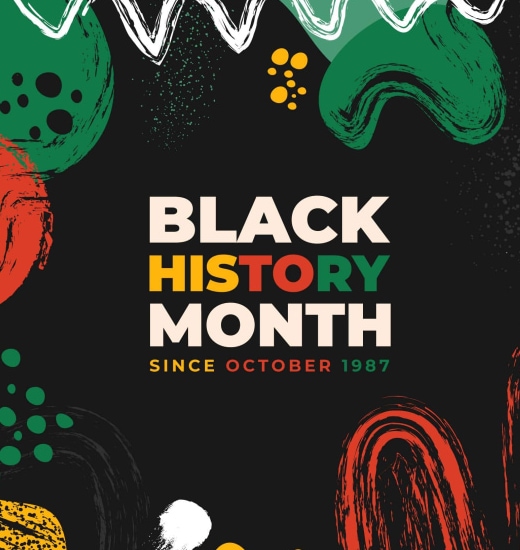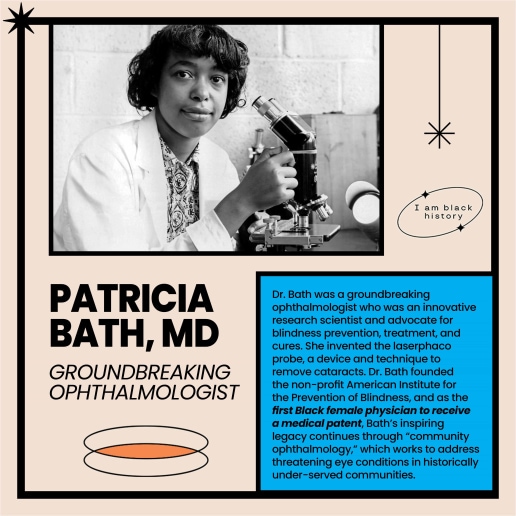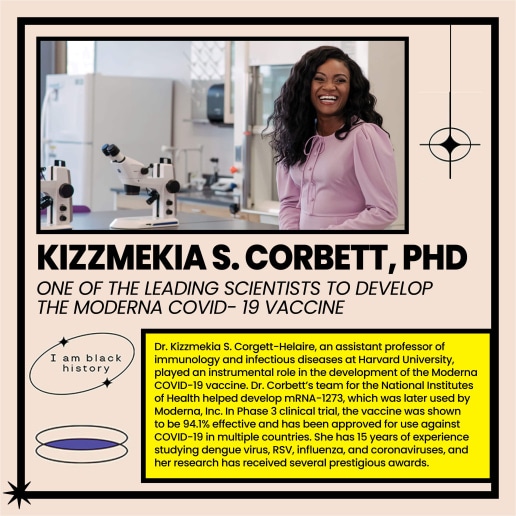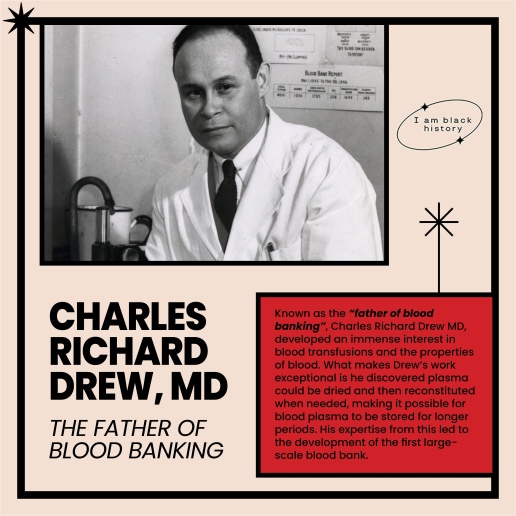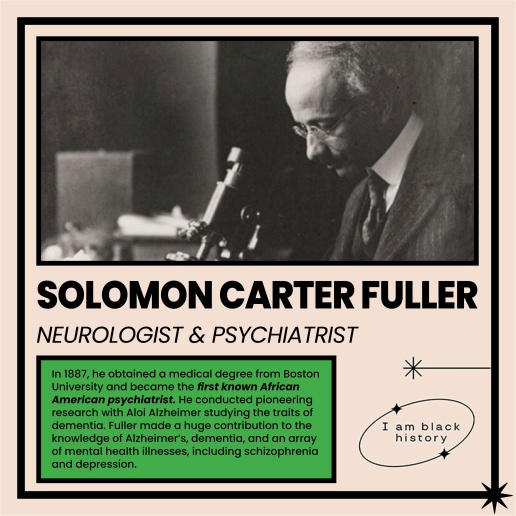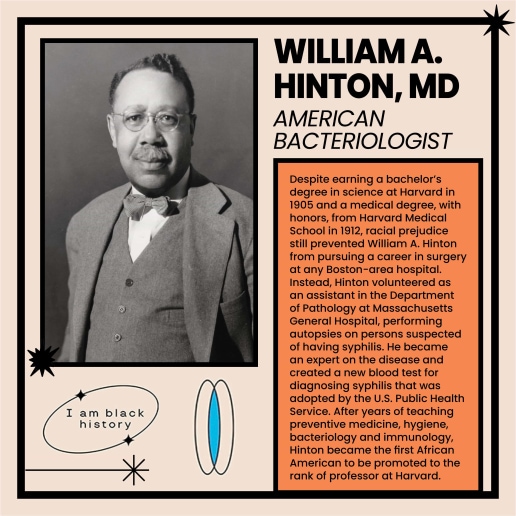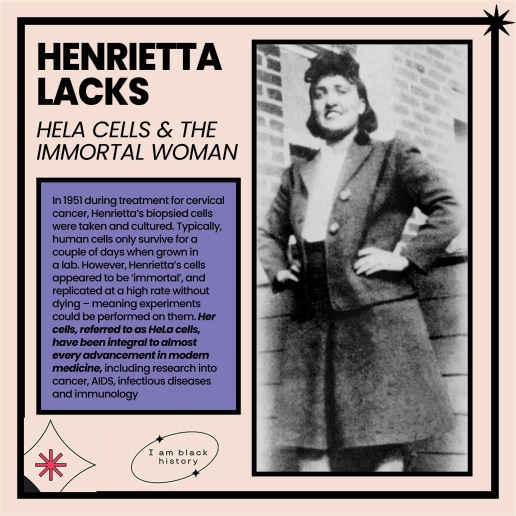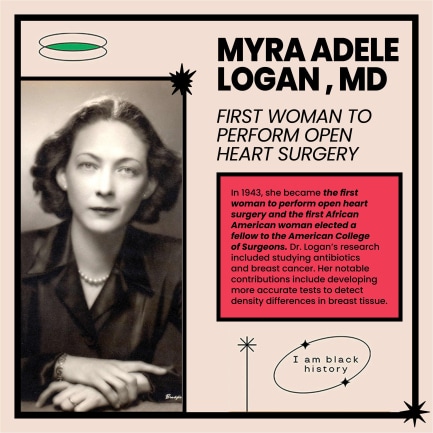Black History Month at New Bedford Community Health
Honoring Black Pioneers in HealthcareAt New Bedford Community Health, we are proud to celebrate Black History Month by recognizing the profound impact Black Americans have had on healthcare, medicine, and public health. Throughout history, Black pioneers in healthcare have broken barriers, advanced medical knowledge, and paved the way for more equitable and accessible care for all.
This February, we are highlighting the stories of trailblazing Black physicians, researchers, nurses, and public health leaders who have shaped modern medicine. From groundbreaking medical discoveries to championing health equity, these individuals have left an indelible mark on the field.
Join us as we honor their legacies and continue working toward a future where quality healthcare is accessible to everyone in our community.
Patricia Bath, MD
Dr. Bath was a groundbreaking ophthalmologist who was an innovative research scientist and advocate for blindness prevention, treatment, and cures. She invented the laserphaco probe, a device, and technique to remove cataracts. Dr. Bath founded the non-profit American Institute for the Prevention of Blindness, and was the first Black female physician to receive a medical patent. Bath’s inspiring legacy continues through “community ophthalmology,” which works to address threatening eye conditions in historically underserved communities.
Kizzmekia S. Corbett, PhD
Dr. Kizzmekia S. Corgett-Helaire, an assistant professor of immunology and infectious diseases at Harvard University, played an instrumental role in the development of the Moderna COVID-19 vaccine. Dr. Corbett’s team for the National Institutes of Health helped develop mRNA-1273, which was later used by Moderna, Inc. In Phase 3 clinical trial, the vaccine was shown to be 94.1% effective and has been approved for use against COVID-19 in multiple countries. She has 15 years of experience studying the dengue virus, RSV, influenza, and coronaviruses, and her research has received several prestigious awards.
Charles Richard Drew, MD
Known as the “father of blood banking”, Charles Richard Drew, MD, developed an immense interest in blood transfusions and the properties of blood.
What makes Drew’s work exceptional is he discovered plasma could be dried and then reconstituted when needed, making it possible for blood plasma to be stored for longer periods. His expertise from this led to the development of the first large-scale blood bank.
Solomon Carter Fuller
In 1887, he obtained a medical degree from Boston University and became the first known African American psychiatrist. He conducted pioneering research with Aloi Alzheimer studying the traits of dementia. Fuller made a huge contribution to the knowledge of Alzheimer’s, dementia, and an array of mental health illnesses, including schizophrenia and depression.
William A. Hinton, MD
Despite earning a bachelor’s degree in science at Harvard in 1905 and a medical degree, with honors, from Harvard Medical School in 1912, racial prejudice still prevented William A. Hinton from pursuing a career in surgery at any Boston-area hospital. Instead, Hinton volunteered as an assistant in the Department of Pathology at Massachusetts General Hospital, performing autopsies on persons suspected of having syphilis. He became an expert on the disease and created a new blood test for diagnosing syphilis that was adopted by the U.S. Public Health Service. After years of teaching preventive medicine, hygiene, bacteriology, and immunology, Hinton became the first African American to be promoted to the rank of professor at Harvard.
Henrietta Lacks
In 1951 during treatment for cervical cancer, Henrietta’s biopsied cells were taken and cultured. Typically, human cells only survive for a couple of days when grown in a lab. However, Henrietta’s cells appeared to be ‘immortal’, and replicated at a high rate without dying – meaning experiments could be performed on them.
Her cells, referred to as HeLa cells, have been integral to almost every advancement in modern medicine, including research into cancer, AIDS, infectious diseases, and immunology
Myra Adele Logan, MD
In 1943, Dr. Myra Adele Logan became the first woman to perform open heart surgery and the first African American woman elected a fellow to the American College of Surgeons. Dr. Logan's research included studying antibiotics and breast cancer. Her notable contributions include developing more accurate tests to detect density differences in breast tissue.




